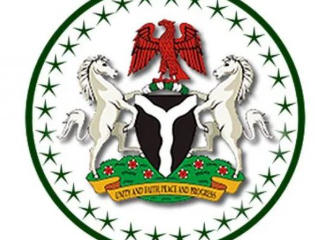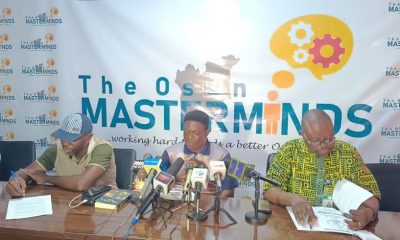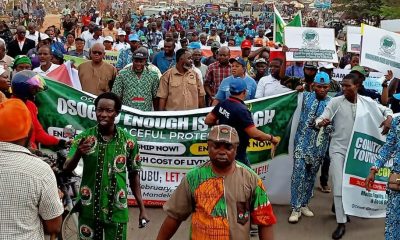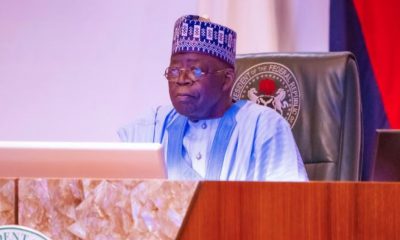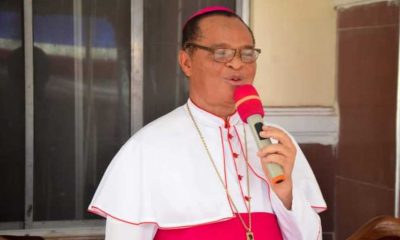By ANDREW OJIEZEL
Trade Union Congress (TUC) has commended the Federal Government over the continued fight against corruption, even as Expose causes of corruption, which cannot be exhaustively discussed at this one occasion alone, but I shall endeavour to highlight some of them.
Making TUC suggestion known, the President, Comrade Bobboi Bala Kaigama and the Secretary General (Barr) Musa Lawal, TUC stated that Corruption is one of the greatest challenges facing the country. Labour hereby proffers the following solutions for effectively combating the malaise:
“Making the judiciary truly independent. To effect this, the judiciary should be placed in the first-line charge for budgetary allocations, just like the executive and the legislature.
“Furthermore, just as appointment and promotion of judicial officers by the executive is on recommendation/approval of the National Judicial Council and/or the legislature, so also should the executive have no power to sack any judicial officer without the recommendation/approval of the Council and/or the legislature. Similar policy should apply in the case of the Inspector General of Police, the Governor of the Central Bank, the chairmen of the Independent National Electoral Commission (INEC), the EFCC, the ICPC, as well as other public officers whose official independence need to be protected by law if they are to perform their duties conscientiously without fear or favour.
ALSO SEE: NLC, TUC, others fault tariff increase
“Establishment of Special Anti-Corruption Courts to hear only corruption cases. This would ensure that the time-span for prosecuting culprits is shortened and actual convictions more assured.
“Strengthening of the two anti-graft bodies – the EFCC and the ICPC. For instance, they should be statutorily empowered to arrest and prosecute culprits without any recourse to any other authority.
“A comprehensive review of the anti-corruption laws and the body of laws relating to finance and the economy to make them meet the challenges of present-day Nigeria is highly recommended. Also, the international laws against corruption should be domesticated.
“Making political office less financially lucrative. For example, the present scenario where a senator in Nigeria which happens to be a country with one of the lowest pa capita incomes in the world earns more than the Presidents of the United States and other advanced nations is grossly anomalous, unhealthy, indefensible and unacceptable.
“It would also serve the nation well to have a law which not only provides for every public office holder to declare his assets on assuming office, but also stipulates that he must repeat the exercise each subsequent year that he is in office and not later than one month after vacating the office. All such declarations should be in three national daily newspapers and not just to the Code of Conduct Bureau. We commend President Buhari and Vice President Osinbajo for setting the appropriate examples in this wise.”
In addition, TUC stated that “the anti-corruption crusade should be fought holistically, netting across all tiers of governance – whether local, state and federal – down to the civil service and the Millennium Development Agencies (MDAs) where it is alleged and believed that corruption is rife.
ALSO SEE: Fashola dares Nigerians by his dictatorial voice — TUC
“Government at all levels must formulate and implement policies that would boost the economy by serving as catalyst for mass creation of decent well-paid jobs in both the public and private sectors. The necessary enabling environment must be created, that is, provision of constant electricity, good roads, pipe-borne water, soft-loans, production-inducing tax regime, and excellent education. The government’s economic team must ensure that working people do not lose their jobs.
“All tiers of government need to demonstrate the requisite political will and provide assistance through legislation and funding of the police and anti-corruption agencies.
“Reorganisation and strengthening of a the Nigeria Police Force, the EFCC, the ICPC and other agencies responsible for fighting corruption, for greater professional performance and efficacy.”

 Entertainment5 days ago
Entertainment5 days ago
 Health1 week ago
Health1 week ago
 Health4 days ago
Health4 days ago
 Football1 week ago
Football1 week ago
 Football1 week ago
Football1 week ago
 Crime4 days ago
Crime4 days ago
 Education6 days ago
Education6 days ago
 Crime1 week ago
Crime1 week ago


